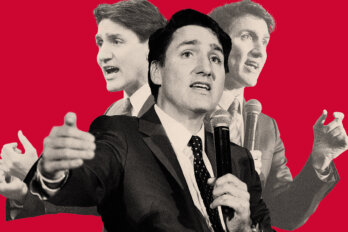We often talk about what governments and social-media platforms can do to foster better conversations online. But how can citizens and social-media users themselves help? What can each of us do to make online discourse more civil, empathetic, and conscientious? The Walrus and The Samara Centre for Democracy have teamed up to ask Canadians why our social-media conversations are so charged—and how this hurts our democracy. Here, we share the results from our special survey. Read more from the “Field Guide to Online Political Conversations” at The Samara Centre for Democracy.





